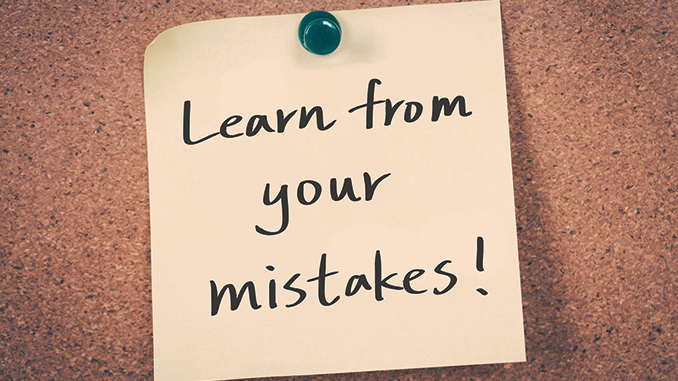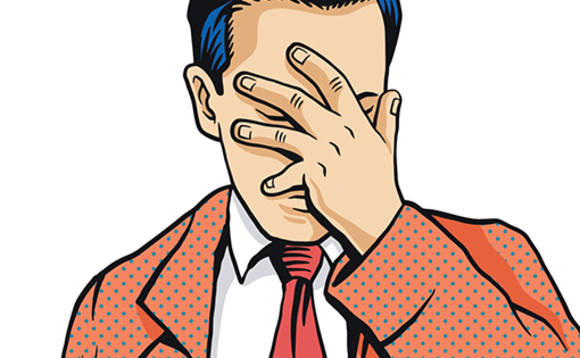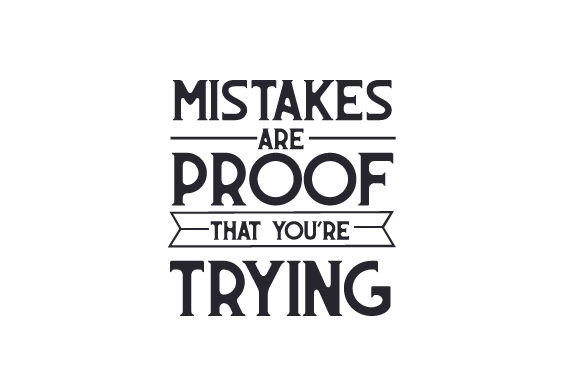“Good judgment comes from experience and experience comes from poor judgment.”
Have you ever found yourself saying, “I’ll never do that again,” only to find yourself doing the exact same thing just a short time later? If so, you’re not alone. It’s likely all of us have repeated some of our mistakes at one time or another.
One of the biggest mistakes we make is that we assume we always learn from our mistakes. I’ve met enough people who learned little from their own stupidity. But making the same mistakes over and over can be costly in more ways than one. Perhaps your team has lost faith in you because your behavior doesn’t match your words. Think back to the last mistake that you made at work. Even if it was a minor one, like spilling coffee on a document seconds before you were due to present it, you’ll likely have felt a rush of panic and then had the inconvenience of putting things right.
We all know these people. In fact, we probably are these people. You know why? It’s damned hard to learn from your mistakes. I’ve never met someone who actually enjoyed failing. Let’s be honest, no one likes to make mistakes, and lose their time, energy, or money. So that’s why we need to make an effort to learn from the things that we wish we didn’t do.
No one is immune to making mistakes – we are human, after all! But if we simply apologize and carry on as before, we’re in danger of repeating the same errors. When we don’t learn from our mistakes, we inflict unnecessary stress on ourselves and on others, and we risk losing people’s confidence and trust in us. Learning from your mistakes does not happen automatically—it requires thinking and reflection.

Why we need to learn from our mistakes?
We need to learn from our mistakes so that we do not run the risk of repeating them. We must develop the wisdom and sense to make good decisions and choices. Good judgment will only develop if you truly learn from your mistakes. Unfortunately, for many people, it takes a few repeats of the same mistake to learn the lesson. Good or bad, experiences are what help us learn lessons and form a better sense of judgment. Bad judgment seems to stick with us longer as a lesson learned because we really do not want to keep repeating it. Wisdom is the knowledge you can gain from making mistakes.
“Anyone who has never made a mistake has never tried anything new.” – Albert Einstein

Lessons everyone should learn from their mistakes:-
Don’t Think You Know Everything
There’s a word for people who think they know everything: Idiot. I meet idiots all the time. And the reason I recognize them is that, I used to be one.Every time you don’t listen to people smarter than you when you want to sound smart, or think you know it all—you’re being an idiot. It’s time to move your ego to the side and understand that life is not about impressing others.
Never Blame People For Your Unhappiness
As a child, you’re taken care of by others. That may be your parents, siblings, family members, foster parents, or any other person who takes responsibility. Hence, you assume that someone is responsible for you.
But that’s not true. When you grow up, you are responsible for you. So never look at others when you’re unhappy—it’s not fair to the people in your life. Instead, accept your unhappiness, and then do something about it.
You’re Probably Not As Awesome As You Think
There’s always someone better looking, cooler, smarter, stronger, or you name it, than you. Always.
So stop thinking you’re awesome. Compared to what? Because that statement implies you’re comparing yourself to others. Just be yourself and don’t compare yourself to others.
How to Stop Repeating Mistakes ?
Re-frame the Error
How you view your mistakes determines the way that you react to them, and what you do next. Chances are, you’ll view your error in a purely negative light for as long as any initial shock and discomfort about it persists.
But, if you can re-frame your mistake as an opportunity to learn, you will motivate yourself to become more knowledgeable and resilient. When you’ve acknowledged your mistake, think about what you could do to prevent it from happening again.
For example, if you didn’t follow a process properly, consider introducing a more robust checklist or a clearer process document. Stop beating yourself up, pause for a moment to reflect, and start thinking about how you can gain from the situation.
To err is human, and we don’t have to punish ourselves for the mistakes that we make. They can be great opportunities to learn, and to develop on a personal, as well as an organizational, level. We just need to learn from them, and to put that learning into practice.


